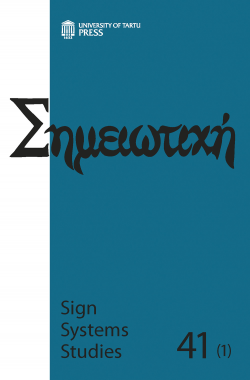Baudrillard's simulated ecology
DOI:
https://doi.org/10.12697/SSS.2013.41.1.05Keywords:
ecosemiotics, environmentalism, postmodern turnAbstract
Jean Baudrillard, the scholar and critic of postmodernity, struggled with questions of postmodern ontology: representation of the real through the semiotic process of signification is threatened with the rise of simulacra, the simulated real. With this rise, seductive semiotic relationships between signs replace any traditional ontological representamen. This struggle has implications for environmentalism since the problems of contemporary environmental philosophy are rooted in problems with ontology. Hence the question of postmodern ecology: can the natural survive postmodern simulation? Baudrillard's communicative analysis of semiotic postmodernity can both support and extend ecosemiotic theses in response to these questions, questions that must be answered in order to explore our paradoxical understandings of the natural and confirm an understanding of environmentalism for postmodernity. In this paper I will argue for the merit of a semiotic understanding of postmodernity, develop the idea of ecology in this context, and then compare Baudrillard's approach to the contemporary development of ecosemiotics.Downloads
Download data is not yet available.
Downloads
Published
2013-05-17
How to Cite
Beever, J. (2013). Baudrillard’s simulated ecology. Sign Systems Studies, 41(1), 82–92. https://doi.org/10.12697/SSS.2013.41.1.05
Issue
Section
Articles


